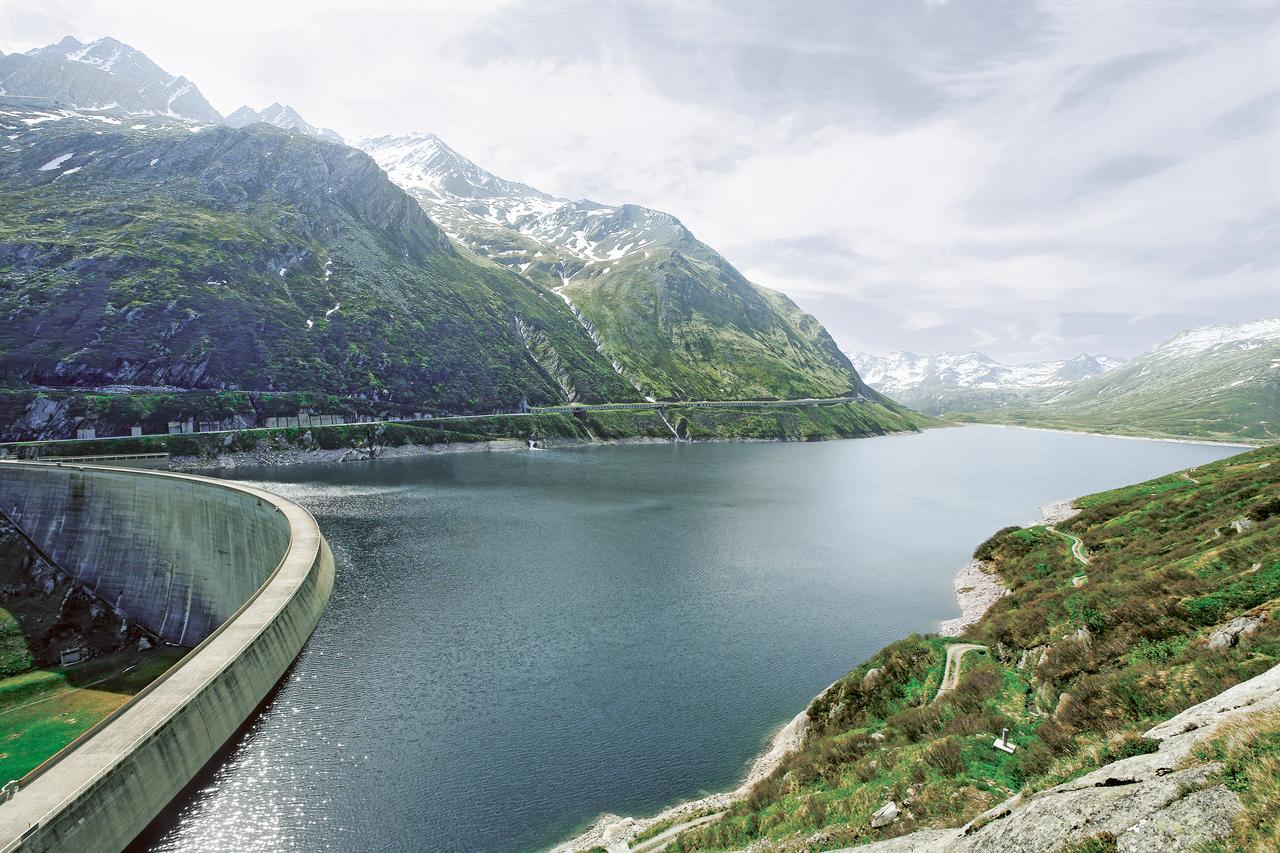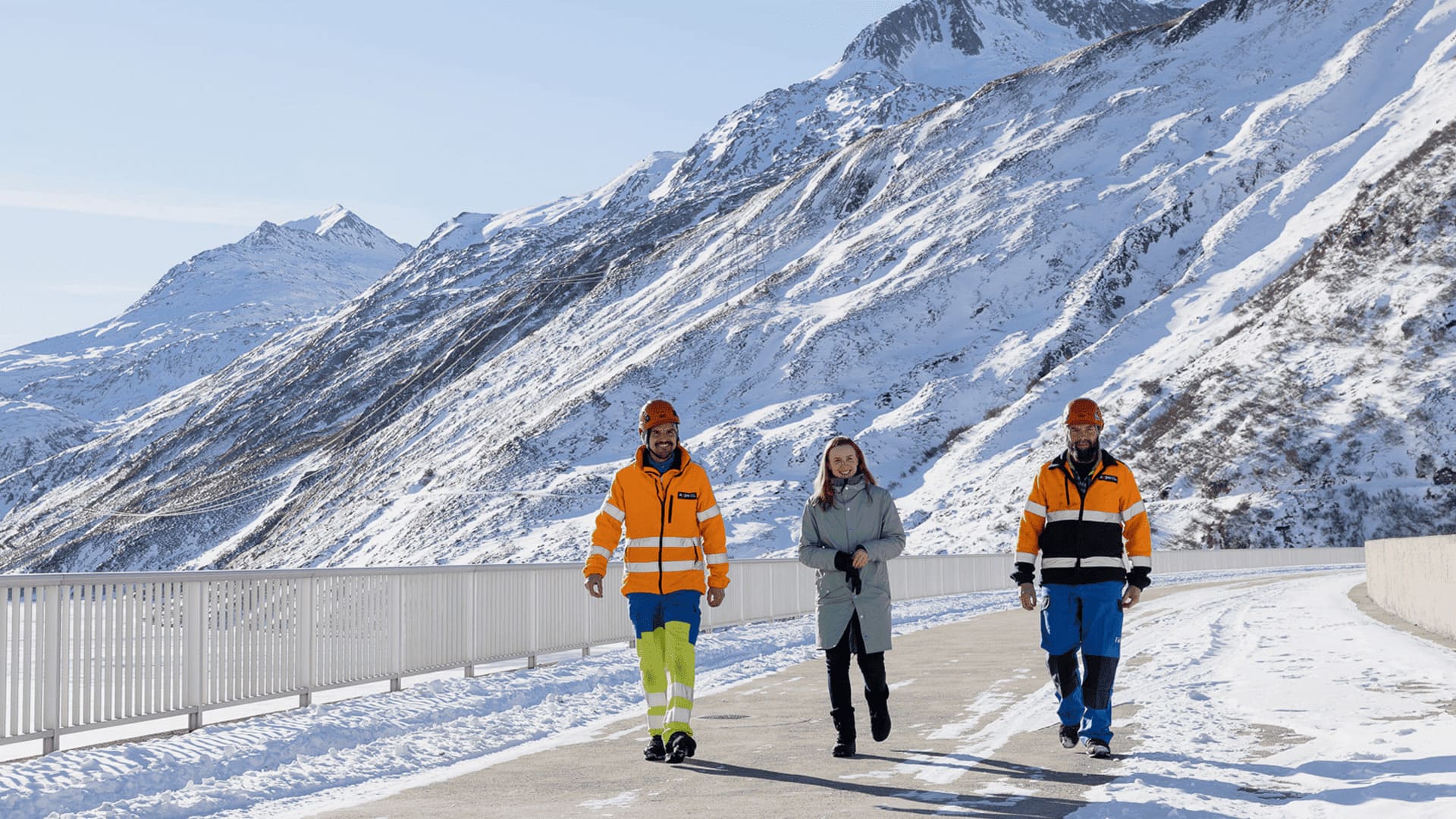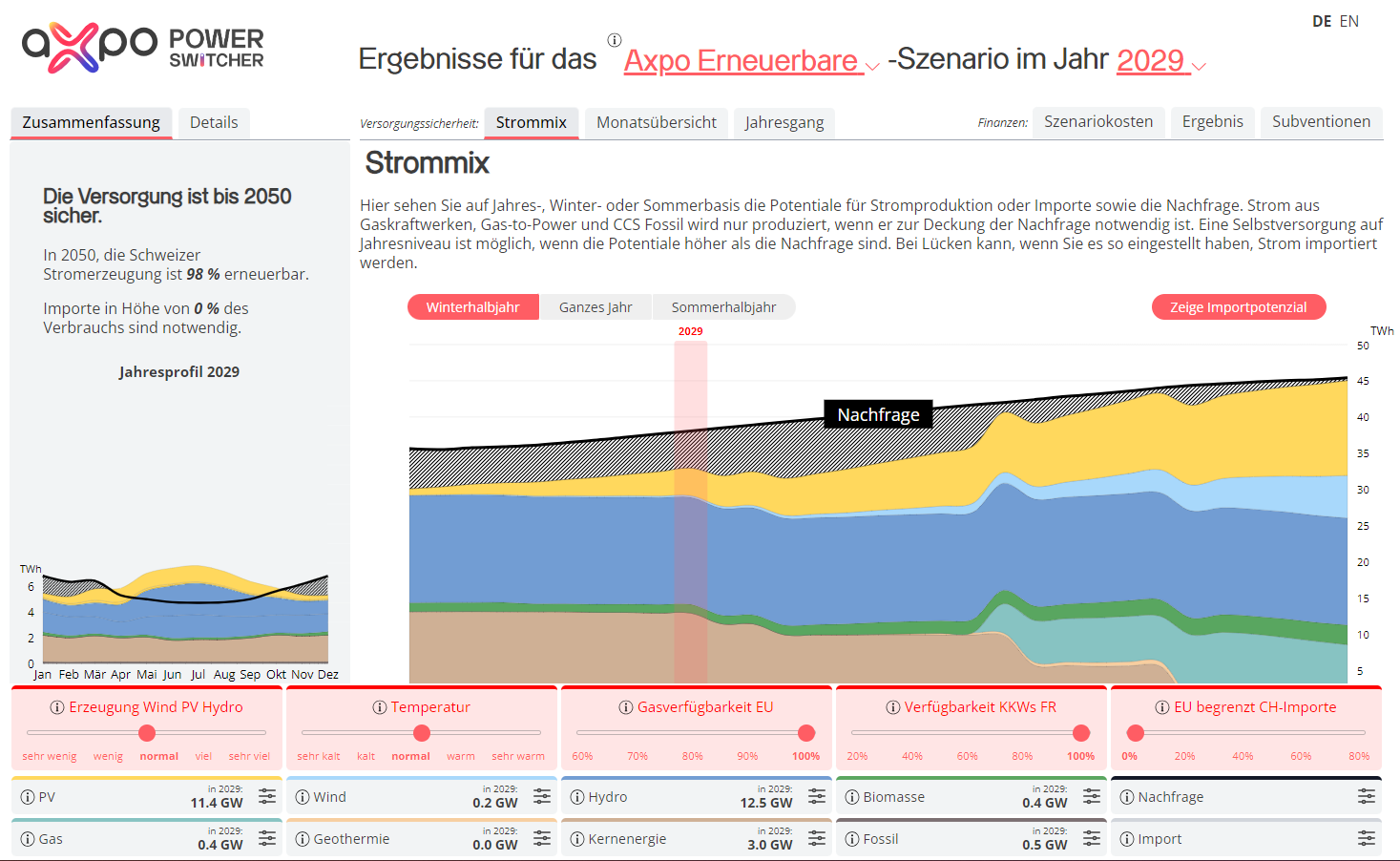Beznau Unit 1: ENSI confirms safety case – Re-start foreseen at the end of March
06.03.2018 - The Federal Nuclear Safety Inspectorate (ENSI) has confirmed the supplementary safety case submitted by Axpo at the beginning of December 2017 for the reactor pressure vessel (RPV) of Unit 1 of the Beznau nuclear power plant (KKB). This marks the successful completion of an extensive testing and analysis process. With the supervisory authority's approval of the safety case, Axpo can now demonstrate that the safety of the RPV of Unit 1 is ensured in compliance with the state of the art as well as national and international regulations. The safety case corroborates earlier assessments and investigations, and once again validates the existing safety margin for the safe operation of the plant for 60 years. KKB will now launch the return to service process. The plant is expected to be operating at full load by the end of March 2018.
KKB has set international standards with the safety case. The extensive, complex analyses took nearly three years. The investigations were carried out in cooperation with leading international companies and experts. Below a brief review:
- In mid-2015, irregularities were detected in the RPV base material in the course of ultra-sonic testing. As a result, the supervisory authority ENSI called for further investigations.
- A roadmap deemed expedient by ENSI and collaborating international experts was defined in order to prepare the safety case. The overall project plant defined the methodology and scope of testing for the analyses.
- Manufacturing documentation had already provided the first indications for the cause of the detected irregularities. The RPV was manufactured in the Creusot Forge (France) in the 1960's. According to the production guidelines at that time, aluminium was added during the casting process to facilitate oxygen bonding.
- In the course of refined ultra-sonic testing and analyses regarding the source and cause of the irregularities, it was possible to prove that these were non-metallic inclusions (aluminium-oxide) that occurred during the manufacturing process, and that can also form larger conglomerations.
- To validate the results, Axpo looked for comparable base material to carry out strength tests as a basis for the structural-mechanical analyses on the integrity of the RPV. However, no comparable material in sufficient quantity was available anywhere in the world. As a result, Axpo decided to have a replica of RPV ring C made. A renowned forge in Great Britain manufactured a replica according to the manufacturing processes of the 1960's. As anticipated, subsequent analyses found that this ring exhibited the same material properties as the existing ring. With the replica it was possible to experimentally verify the source of the ultra-sonic detections. The replica was also used as a basis to create material samples.
- Destructive strength tests (tensile and impact strength) were carried with several hundred of these samples. Metallographic analyses and material tests confirmed that the inclusions had no negative impacts on the material properties of the RPV.
- In order to determine the available safety margin for the future operation of the RPV, integrity tests and calculations were carried out in a further step according to valid international requirements (ASME Code) and national provisions. The analyses establish that the strength of the reactor pressure vessel is not compromised by the aluminium-oxide inclusions.
Conclusion: The safety case for the RPV of Unit 1 was produced under the most conservative hypotheses. It was confirmed that the safety-technical requirements and legal provisions for the safe operation of the plant were fulfilled for a service life of 60 years.
Based on ENSI's positive decision, KKB will now launch the phase-wise return to service process for Unit 1. Extensive safety tests will be carried out during the process. Power operation of the plant will take place in phases so that Unit 1 is expected to be operating at full load end of March 2018. At times, steam will be emitted from the non-nuclear section of plant during the restart. This does not pose any danger to human beings or the environment.
The plant will make a valuable contribution to domestic energy production and the security of supply in Switzerland, and, hence support the Energy Strategy 2050 adopted by Swiss voters.
Detailed documentation is available in the dossier.
- Media release View Send email Download
Axpo Holding AG
Corporate Communications




.jpg)





